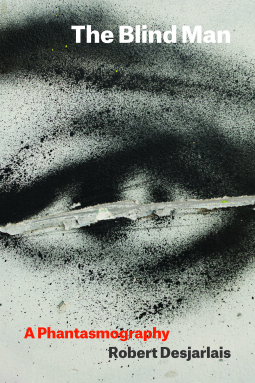
The Blind Man
A Phantasmography
by Robert Desjarlais
This title was previously available on NetGalley and is now archived.
Send NetGalley books directly to your Kindle or Kindle app
1
To read on a Kindle or Kindle app, please add kindle@netgalley.com as an approved email address to receive files in your Amazon account. Click here for step-by-step instructions.
2
Also find your Kindle email address within your Amazon account, and enter it here.
Pub Date Nov 20 2018 | Archive Date Dec 31 2018
Talking about this book? Use #TheBlindMan #NetGalley. More hashtag tips!
Description
The Blind Man: A Phantasmography examines the complicated forces of perception, imagination, and phantasms of encounter in the contemporary world. In considering photographs he took while he was traveling in France, anthropologist and writer Robert Desjarlais reflects on a few pictures that show the features of a man, apparently blind, who begs for money at a religious site in Paris, frequented by tourists. In perceiving this stranger and the images his appearance projects, he begins to imagine what this man’s life is like and how he perceives the world around him.
Written in journal form, the book narrates Desjarlais’s pursuit of the man portrayed in the photographs. He travels to Paris and tries to meet with him. Eventually, Desjarlais becomes unsure as to what he sees, hears, or remembers. Through these interpretive dilemmas he senses the complexities of perception, where all is multiple, shifting, spectral, a surge of phantasms in which the actual and the imagined are endlessly blurred and intertwined. His mind shifts from thinking about photographs and images to being fixed on the visceral force of apparitions. His own vision is affected in a troubling way.
Composed of an intricate weave of text and image, The Blind Man attends to pressing issues in contemporary life: the fraught dimensions of photographic capture; encounters with others and alterity; the politics of looking; media images of violence and abjection; and the nature of fantasy and imaginative construal. Through a wide-ranging inquiry into histories of imagination, Desjarlais inscribes the need for a “phantasmography”—a writing of phantasms, a graphic inscription of the flows and currents of fantasy and fabulation.
Advance Praise
"Emerging from an unknown body, enthralling images, and lacerating silences, The Blind Man is written with the force of literature. Desjarlais’s fierce masterpiece reawakens anthropology’s sense of wonder with the affective, spectral nature of worldly encounters. A transformational book."--João Biehl, Princeton University
"A compelling read, with
thought-provoking insights on the nature of photography and visuality.
Written as though a diary, the book combines extended visual analysis of
personal photographs with keen observations about the slipperiness of
perception and identity and the notion of the Other. Original and
stimulating in presentation, the book is also well written, poetic, and
often gripping."--Frederick Gross, author of Diane Arbus’s 1960s
Available Editions
| EDITION | Other Format |
| ISBN | 9780823281114 |
| PRICE | $33.00 (USD) |
| PAGES | 232 |



